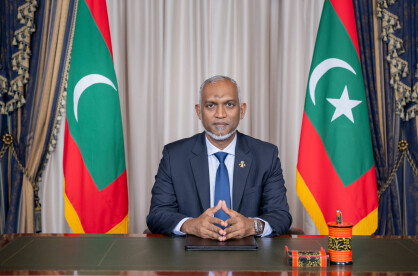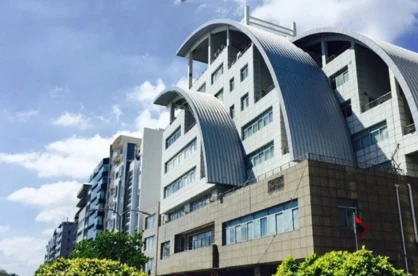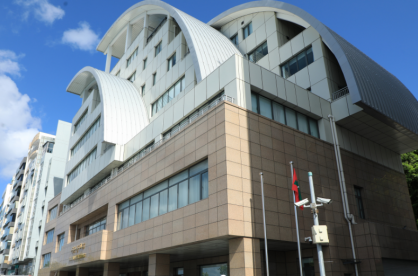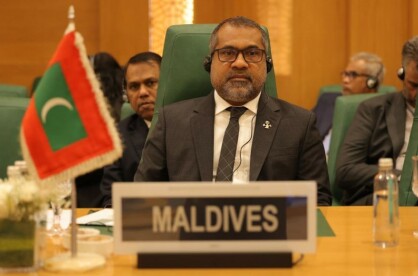Why decentralisation is failing
Administration upon administration never fails to talk the talk but come up woefully short when time to walk the walk.

Source: Irushad Abdul Rahman
Administration upon administration never fails to talk the talk but come up woefully short when time to walk the walk.

Source: Irushad Abdul Rahman
The 2008 constitution paved way for decentralisation policies that were aimed at strengthening the nation by allowing the people autonomy based on where they were located. A population of 400,000 separated by waves and coral reefs sorely needed a system that would allow them to grow and achieve their full potential without being restricted by the geography. So far, the system doesn’t seem to have worked in their favour as well as could be hoped.
To gain some insight, it is important first to accept that Maldivian society cannot be completely drawn parallel with other societies around the world. The way the culture has evolved, the way the people had adapted and thrived in the natural geography, and the way religion has played a part in shaping the way the communities were run plays a part in setting the Maldives apart from other societies. Monarchal leadership was always a key element, in the times of the sultans and kings down to island chiefs, and it is here where a grievous miscalculation in political manoeuvring was committed.
During the presidential term of Mohamed Nasheed, a lot of the olden, entrenched cultures and class systems were the target of restructuring. While the intent was pure, his proverbial hands were tied, as the ruling MDP party that backed him found no foothold in the parliament against the DRP opposition. Instead, he brought about changes from his executive prerogative.
Each island was historically run by two people, a Bodu Katheeb and a Kuda Katheeb, who were basically the island chief and their deputy. Over time this position was more or less hereditary, which went against the democratic system Nasheed had advertised on his rise to power. Therefore he had taken pains to remove these leaders and their families from their positions of influence and instate people who could be described as activists who were to further his cause.
He installed pseudo local councils using these activists, and this was done in the interim period before the actual law was passed. The intent, as mentioned above, was pure. Nasheed wanted to promote participation of the people in their administration, as should be in a democracy, yet this step he had taken opened a door he had not anticipated. DRP, seeing as they needed the popular vote to further their stake in politics, contorted this concept further.
They proposed a lucrative allotment of multiple council members in salaried positions, having little to no preconditions or forethought, passing the law in 2010 and finally coming into force by 2011. It was this system that would allow the political parties to push their candidates into these important, localised administrative positions, and somehow this created more confusion and obstacles on the path to development. The issue that remains prevalent in modern Maldivian society is how positions of power are being taken by people with little no knowledge in governance or administration, or even legislature when it comes to the parliament.
These are paramount fields of knowledge for a nation to prosper. With a population of nearly hundred percent literacy and a saturation of bachelors degree holders up to PhDs, the Maldivian people have to be worried that not many of these educated people were in the administrative positions due to party politics. Theocracy was a forgotten concept, and for this reason the local council’s elected members were ill-equipped to take on the administrative duties of a fledgling, decentralised democracy.
What could have been done was a more robust council system. Each island was unique in either the most distinct or subtle ways, and this should have been a strength in application. The council could have been comprised of village elders of different fields with a menial allowance, grouped together to work together in discussion and planning. The execution of these plans should be left to appointed, salaried, council officials, who would ensure proper administrative duties were taken care of. This would have created a system that would flow from the drawing board to reality in ease, with the island’s unique views, issues, and prospects ascertained.
The current system now gives parties the chance to extend their influence over regions rather than actually carry out the necessary responsibilities of a council. Those who even run for candidacy are mostly voted in due to party loyalty rather than being based on merit or ability. They are unprepared for the work they are to do, requiring multiple training sessions and workshops to take place. The inefficiency in the system due to this has been apparent for years already.
The councils also need to be impartial. While manifestos can decide legislation and the general direction of the nation via the executive, the council’s duties are more present and immediate. They need to be able to cater to the needs of the people that depend on them, and also to ensure that the economic activities of that jurisdiction further the progress of those people. To this end, by having a well-informed, prepared group of leaders, and a driving force that is not only party or financially motivated, the councils would be more equipped to patch the holes in administration in the achievement of decentralisation.
The current system is flawed, and blame falls to both ends of the political spectrum; DRP for furthering popular vote by applying a quick fix to the suggested system, and for MDP for not having a longterm, well thought out approach to councils in the first place. Change would need to happen from the top in this instance, with a closer look at what is actually needed, and to make amendments to the local governance laws to accommodate those changes. If the politically motivated could take the time of day to assess the plight of the Maldivian people, the dream of matching up with role-model nations like Singapore may not be far off.



